General
Council Calls for Consultative, Mak Strategic Plan & NDPIII-Inclusive Budgeting
Published
4 years agoon
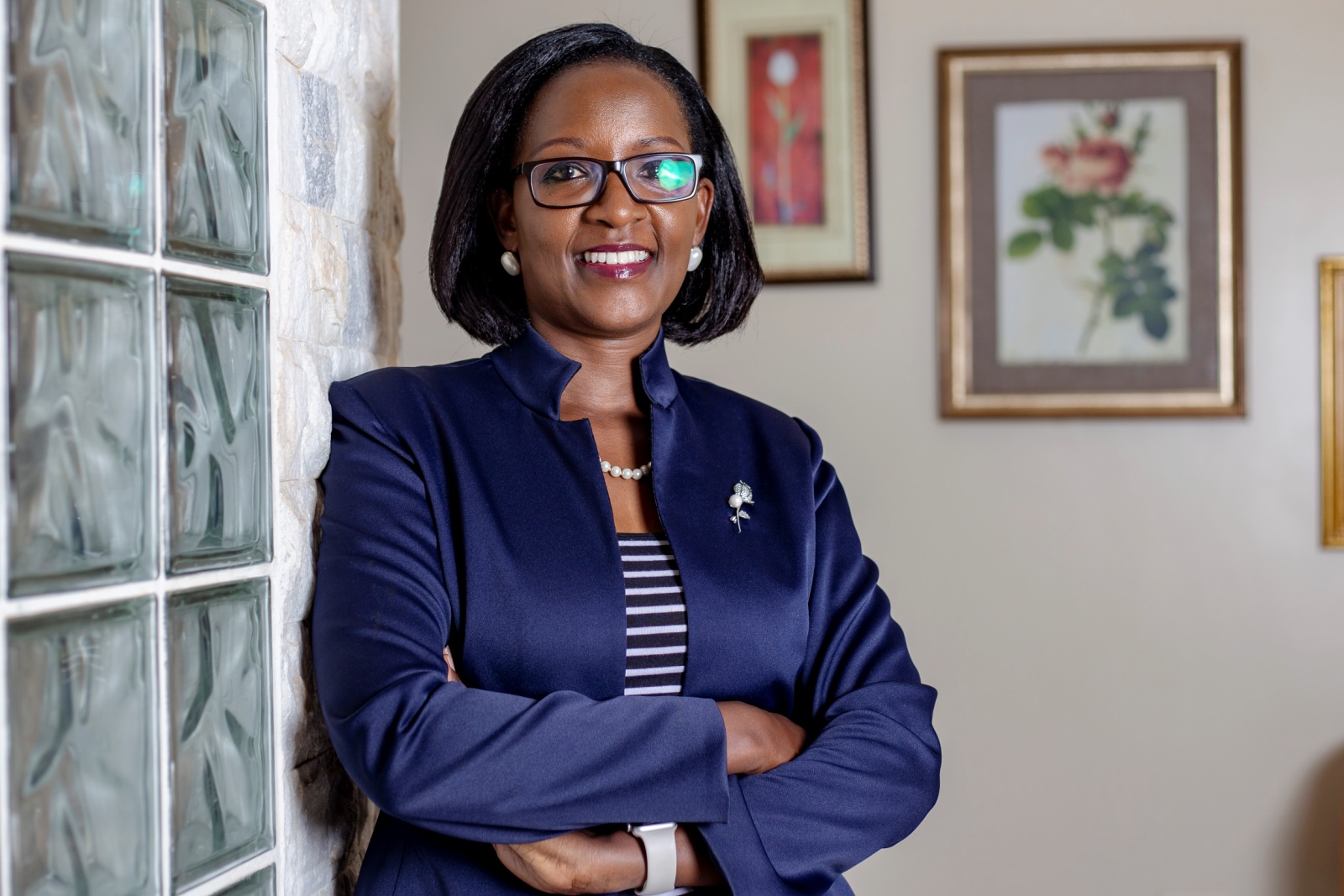
The Makerere University Council Chairperson represented by the Chairperson Finance, Planning, Administration and Investment Committee (FPAIC) of Council-Mr. Bruce Balaba Kabaasa has called upon Unit heads to ensure a consultative and inclusive budgeting process that is aligned to the objectives of the Third National Development Plan (NDPIII) and Makerere University Strategic Plan (2020-2030). The call was made during the Annual Budget Conference held virtually on 14th October 2021.
“It is my pleasure to preside over the opening of the Makerere University Budget Conference 2021, for the financial year 2022/2023. I wish to thank the Chairperson of Council Mrs. Lorna Magara who delegated me to perform this duty on her behalf” remarked Mr. Kabaasa.
He noted that the Higher Education sector, just like many other sectors, has been severely disrupted by measures aimed at controlling the spread of COVID-19 and has as a result suffered from shortfalls in revenue.
“It turns out that we must rethink the methodologies for pursuing our set goals because the new normal demands an urgent shift from business as usual and therefore, the budget being the principal tool for executing the new normal must shift” he pointed out.
The Chair FPAIC added that this year’s budgeting process was more critical than ever before, calling for a balance between realizing the goals and targets of the University Strategic Plan, and ensuring that the planned activities are consistent with operational dynamics occasioned by COVID-19.
He therefore urged the College Principals and Administrative Unit heads to align their budgets to the Budget Call Circular issued by the University Secretary as well as the University Strategic Plan and NDPIII.
“I wish to emphasise that the budgeting must be consultative and inclusive. Consultations must go beyond conferences such as the one we are having today. All stakeholders in given budgeting units must have a chance to contribute towards setting the budget priorities and allocation of funds to those priorities in the respective units” Mr. Kabaasa highlighted.
The Chair FPAIC further requested the budgeting units to involve the relevant Council Committees in the budgeting process right from the onset, as a means of ensuring adherence to set guidelines. He concluded by urging the cost centres to go beyond receiving technical guidance from the Gender Mainstreaming Directorate (GMD) and identify peculiarities within their respective units that respond to the gender and equity requirement and qualify them so as to fit within the regulations while meeting their unique needs.
In her remarks, the Acting Vice Chancellor and Deputy Vice Chancellor (Finance & Administration) Dr. Josephine Nabukenya thanked all participants for sparing time to congregate and deliberate on how best to deliver a good budget based on the proposed roadmap. The roadmap for the budget process for Financial Year 2022/2023 is highlighted below.
- 14th October 2021 – Stakeholders’ Budget Conference and Sensitisation on the new Budget structure aligned to NDPIII
- 14th October 2021 – Communication of the Budget Call Circular and issue of Ceilings to all the Units
- 19th October 2021 – Budget Units/Cost Centres Submit their Draft Budgets
- 20th October 2021 – Consolidation of University Budget
- 22nd and 23rd October 2021 – The University Budget Committee Retreat
- 25th October 2021 – The University Central Management Finance Committee Approval
- 26th October 2021 – The University Central Management Committee Approval
- 28th October 2021 – The Finance, Planning, Administration and Investment Committee (FPAIC) of Council Approval
- 5th November 2021 – University Council Approval
- 10th November 2021 – Submission of the Budget Framework Paper and the Consolidated Draft Budget 2022/2023 to the Ministry of Finance, Planning and Economic Development (MoFPED).
“We have had several meetings in preparation to fulfill this cycle and so far we seem to be progressing very well. We are extremely grateful to the cost centre heads, who have put in time to ensure that they follow the almanac for producing this budget in time” remarked Dr. Nabukenya.
She extended sincere thanks to the Offices of the University Secretary and University Bursar as well as the Planning and Development Unit for all preparations leading up to the Budget Conference. The Acting Vice Chancellor equally acknowledged and thanked the Colleges and Administrative Units that had already made input into the budgeting process, and urged others to make theirs too.
“May I request through this conference that everybody who is supposed to provide input to have this budget process executed successfully do their part and in a timely manner” said the Acting Vice Chancellor.
Earlier while introducing the budget process, the University Secretary (US) Mr. Yusuf Kiranda shared that the University had since receiving the Budget Call Circular from MoFPED on 15th September been making internal preparations, which included sourcing for the figures that form the basis for budgeting.
“These include projection of student numbers, staffing figures, infrastructure requirements, revenue from various sources including tuition and others, which together guide us on how we will budget” he explained.
The US noted that the conference was organized in compliance with the requirement of Section 9 (i) of the Public Finance Management Act 2015 (as amended), which requires every accounting officer in consultation with relevant stakeholders, to prepare a budget framework paper for the vote, taking into account consideration of balanced development as well as gender and equity responsiveness.
Referring to the Budget Call Circular received from MoFPED, Mr. Kiranda shared the theme for FY 2022/2023 as “Industrialisation for Inclusive Growth, Employment and Wealth Creation”. He also mentioned the budget strategy and priority interventions for the Government of Uganda in FY 2022/2023 as;
- To mitigate the COVID19 impact on business activity and livelihoods to support the recovery of the economy back to normality by increasing access to capital, revamping health infrastructure and health systems; reducing vulnerabilities and ensuring access to education.
- To speed up recovery of the economy; to sustain economic growth for socioeconomic transformation through re-prioritizing and delivering impactful investments and restructuring resources/budget to areas with more value for money.
- To sustain macro-economic stability, peace and security as key foundations for growth and development by keeping exchange rate stability, inflation control, maintaining an adequate reserve of forex; and mitigating emerging internal and external security threats.
Using the Research and Innovations Fund (Mak-RIF) as an example, the US noted that the University can tailor its research to answer to some of the priorities that have clearly defined in the National Budget Strategy 2022/2023.
Presenting the New Budget Structure FY 2022/2023 and implications for budgeting Units, Mr. Kabuye Matia, the Acting Manager Planning and Development informed the conference that the Education Sector has now been designated as a sub-programme under the Human Capital Development programme.
“In the new budget structure, all colleges are going to have three budget outputs namely: teaching and training; research, innovations and technology transfer; and community outreach. When it comes to the support services sub-sub-programme, the new budget structure includes: governance, which entails business of Council and Senate with their sub-committees; general administration and support; academic affairs; library services; contributions to research and international organizations; ICT/e-learning; research, consultancy and publications; students welfare,” explained Mr. Kabuye.
He also noted that under the new normal, emphasis should also be put on how cost centres are to support safe delivery of services. “Every vote should assign a specific department to coordinate the two Government-funded projects i.e. Retooling and Infrastructure Projects.”
The University Bursar, Mr. Evarist Bainomugisha who presented the Budget Performance FY 2019/2020 shared that the University received 98.9% of its approved budget of UGX 363.736 Billion. The proportionate distribution of the University budget expenditure was Wage 58%, Non-wage 38% and Development 4%.
“Collections for last financial year were UGX 69.6 Billion, which was 72% of the budget, and the shortfall is attributed to COVID-19 and the closure of the University resulting in some of the students not paying tuition” explained the Bursar.
In terms of Retooling and Infrastructure Projects, the University completed renovations on the Senate Building, Main Library, Mathematics Building and University Hospital. Ongoing development works include; partitioning of Central Teaching Facility 1, School of Women and Gender Studies Building, the Indoor Stadium, School of Public Health, Department of Dentistry, School of Law, among others.
Delivering the closing remarks, the Conference Programme Manager and Principal, College of Business and Management Sciences, Dr. Eria Hisali thanked participants for sparing time to attend the conference. He urged unit heads to stick to the strategic direction of the University and NDPIII as they finalise the budgeting process.
“It is encouraging to note that all the units derived their own strategic plans from the University Strategic Plan. I wish to assure the Chairperson of Council that we will comply with your guidance as well as the requirements stipulated in the Budget Strategy Paper issued by the Ministry of Finance, Planning and Economic Development” he concluded.
You may like
-


Makerere Graduation Underscores Investment in Africa’s Public Health Capacity
-
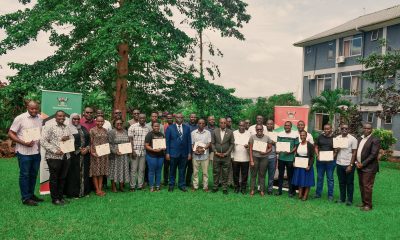

Thirty Public Officers Certified in Integrated Regulatory Cost-Benefit Analysis
-


Botswana Delegation Visits Makerere’s Public Investment Management Centre to Study Sustainable Training Model
-
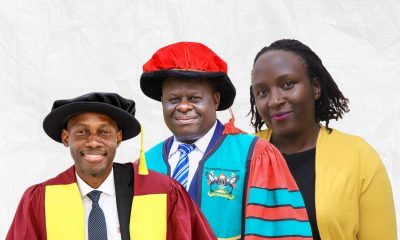

Three MakSPH Faculty Honoured with Makerere University Research Excellence Awards 2026
-


Makerere University commemorates 13 transformative years of partnership with Mastercard Foundation
-


200 UVTAB students graduate: CEES emphasizes Skills, Integrity and Community Impact
General
Makerere Explores Strategic Industry Partnership with Psalms Food Industries to Strengthen Manufacturing Innovation
Published
12 hours agoon
March 4, 2026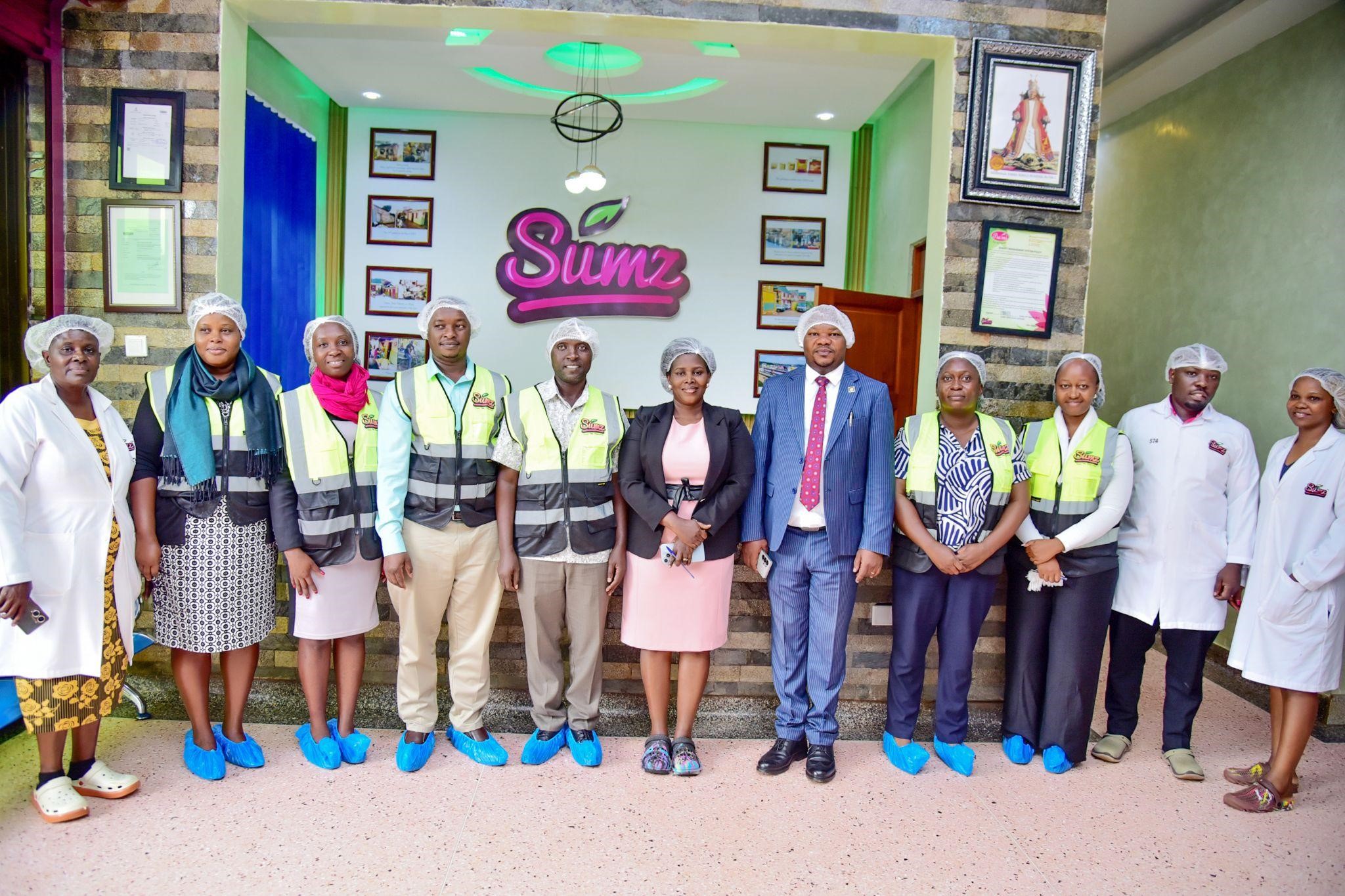
On 2nd March, 2026, representatives from the Advancement Office, the College of Business and Management Sciences and the University Innovation Pod visited Psalms Food Industries to discuss a prospective partnership aimed at strengthening university–industry collaboration in manufacturing, research, innovation, and skills development.
Psalms Food Industries, a homegrown snacks innovation and manufacturing company, operates three major brands, namely, Sumz, Afrikan Harvest and Krunchables, which have grown to a range of 37 products and target the introduction of five new products annually. The company distributes products across Kenya, Rwanda, the Democratic Republic of Congo, South Sudan, and, recently, Tanzania. As a labour of love, the idea of producing snacks was born during the honeymoon of Mr and Mrs Ngabirano, who now run Psalms Food Industries side by side.
Dr. Denis Ngabirano, CEO and Co-Founder of Psalms Food Industries, during the meeting, described the company as “a snacks innovation house, with all our products developed in-house.” He noted.
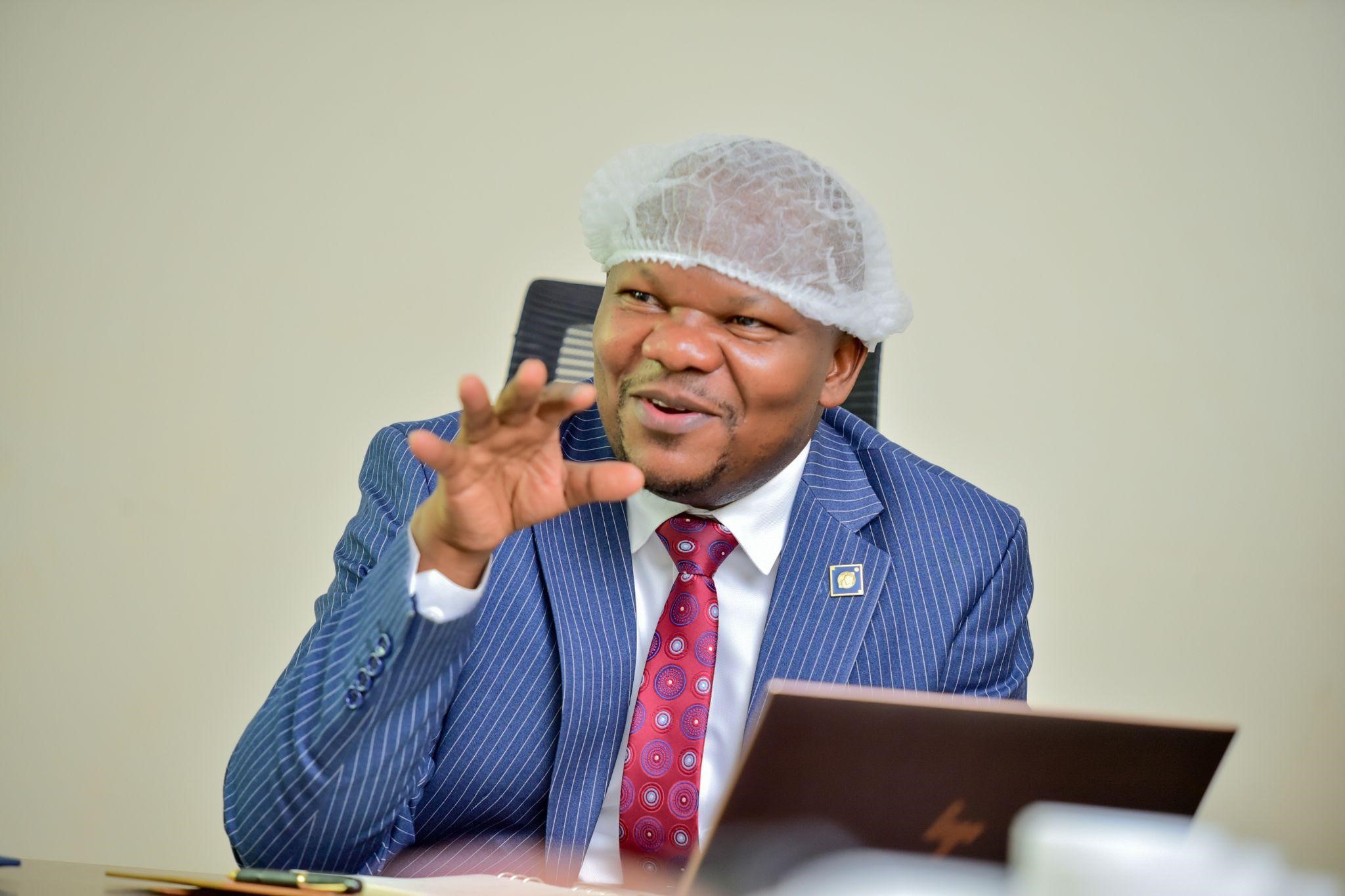
He emphasised the company’s commitment to quality assurance and consumer-centred research, noting that Psalms conducts surveys and gathers customer feedback to inform product development, supported by an internal microbiology and chemistry laboratory.
Dr. Denis Ngabirano noted that the company had only recently introduced two brands, “Afrikan Harvest for it’s health conscious clientele and Kruchables for it’s volume centric clientele.
“Afrikan Harvest has no additives, it is a brand for health-focused consumers,” he explained, while highlighting the differentiated positioning of their product lines. “Sumz is our premium brand, and Krunchables focuses on volume.”
Student-Centered Experiential Learning
A key focus of the meeting was structured experiential learning for students across disciplines. Potential areas of collaboration include internships, graduate trainee pathways, and hands-on exposure within Psalms’ incubation and production facilities.
The proposed engagement spans multiple fields, including environmental sciences, engineering, procurement and logistics, finance and accounting, quality control, production and manufacturing, human resource management, marketing, and international business.
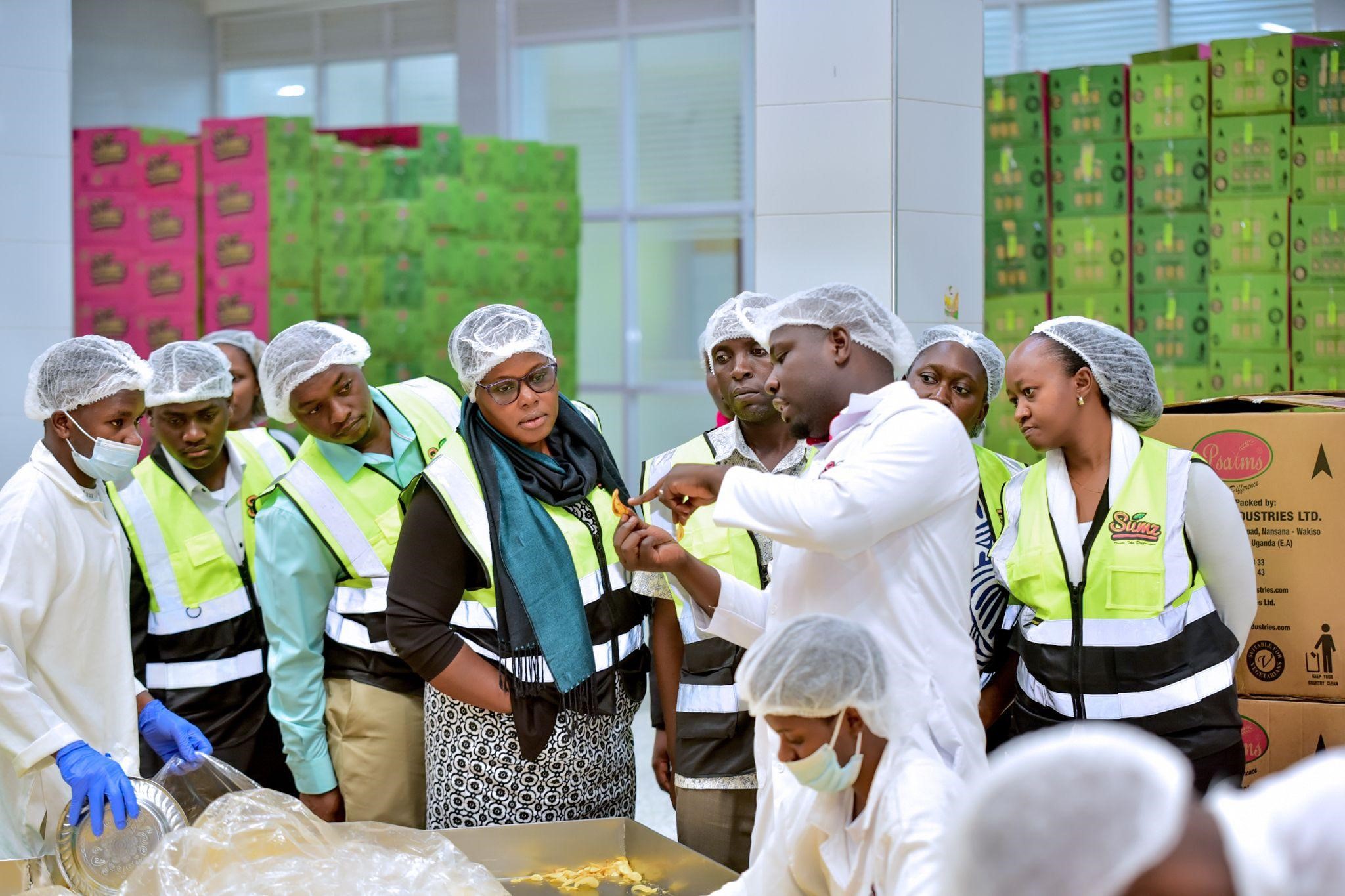
The partnership could provide students with direct exposure to real-time production systems, standard operating procedures (SOPs), and quality assurance frameworks, strengthening the practical relevance of their academic training.
Among the innovative ideas discussed was a potential competition involving students from the Fine Art and Industrial Design disciplines to redesign packaging for selected Sumz products. The proposal would allow top designs to be commercially adopted, creating a direct bridge between creativity, intellectual property development, and industrial application.
Research, Innovation and Commercialisation
Both institutions expressed interest in joint applied research initiatives, particularly in process optimisation, data analytics for manufacturing efficiency, product improvement, and sustainable production systems.
Opportunities were also discussed around collaborative research in machine design, crop development for snack processing, and factory energy solutions, areas that not only benefit Psalms but have broader implications for Uganda’s manufacturing sector.
The engagement further highlighted potential linkages with the University’s innovation and commercialisation structures, including the University Innovation Pod (UNIPOD), to support co-creation and scaling of student-led innovations.
Mr Awel Uwihanganye, Chief Advancement Officer at Makerere University, proposed strengthening the engagement through structured programming, including a planned collaboration between the University’s innovation Hub and the upcoming incubation Hub at Psalms Food Industries, particularly to support the commercialisation of research outcomes for both students and staff.
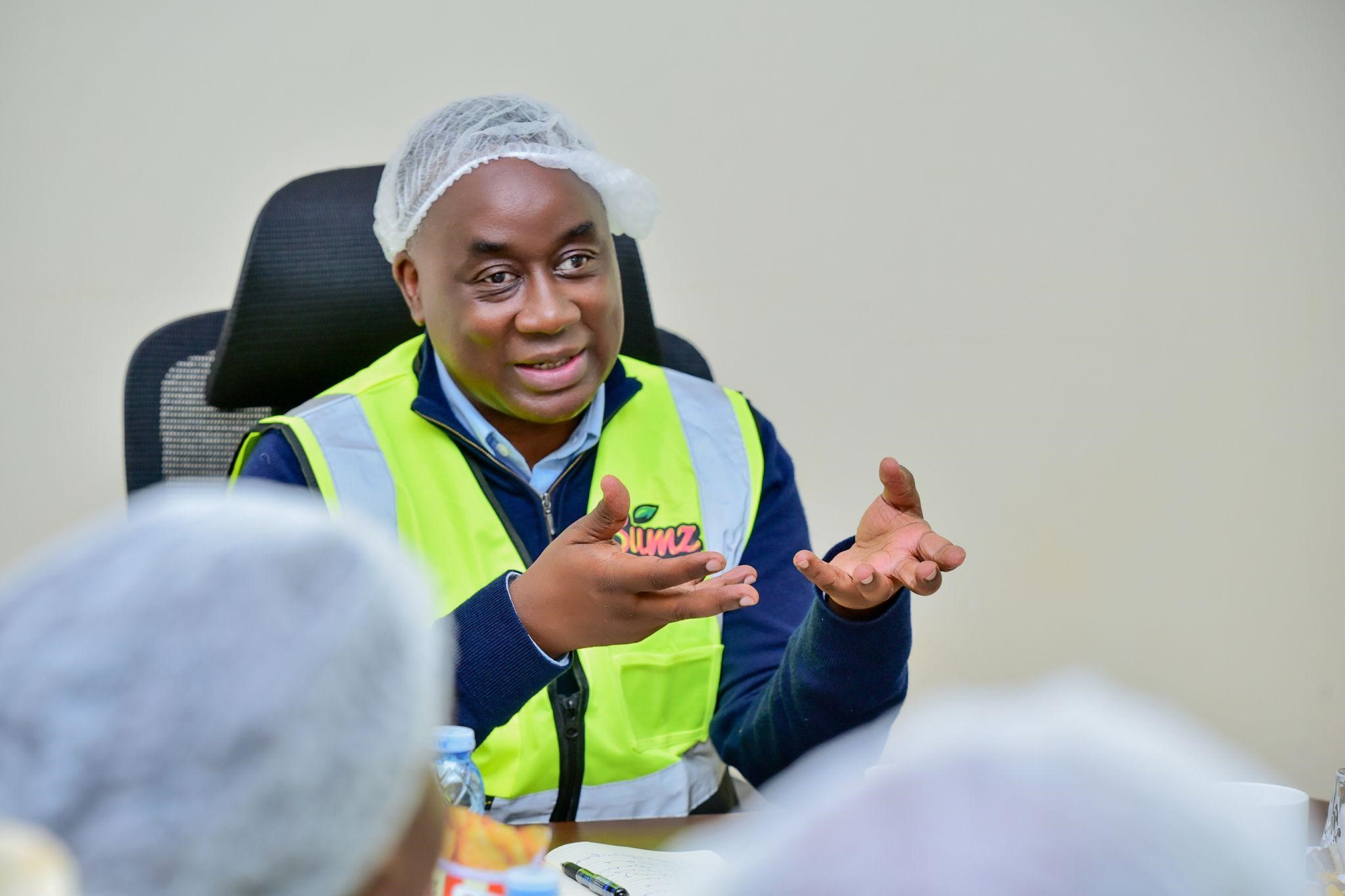
Curriculum Co-Creation and Staff Exchange
Beyond student placements, discussions also focused on co-developing academic content that responds more directly to industry needs, particularly within the manufacturing value chain.
Proposals included guest lectures by industry practitioners, staff exchange programmes to expose academic staff to factory operations, and tailored short courses for Psalms staff based on identified skills gaps.
Dr. Jude Mugarura, Head of the Department of Marketing and Management at COBAMS, emphasised the importance of embedding the partnership within academic programming. He proposed “internships for students in HR, marketing, international business, accounting and finance,” as well as staff exchanges to give University staff hands-on exposure to manufacturing operations.
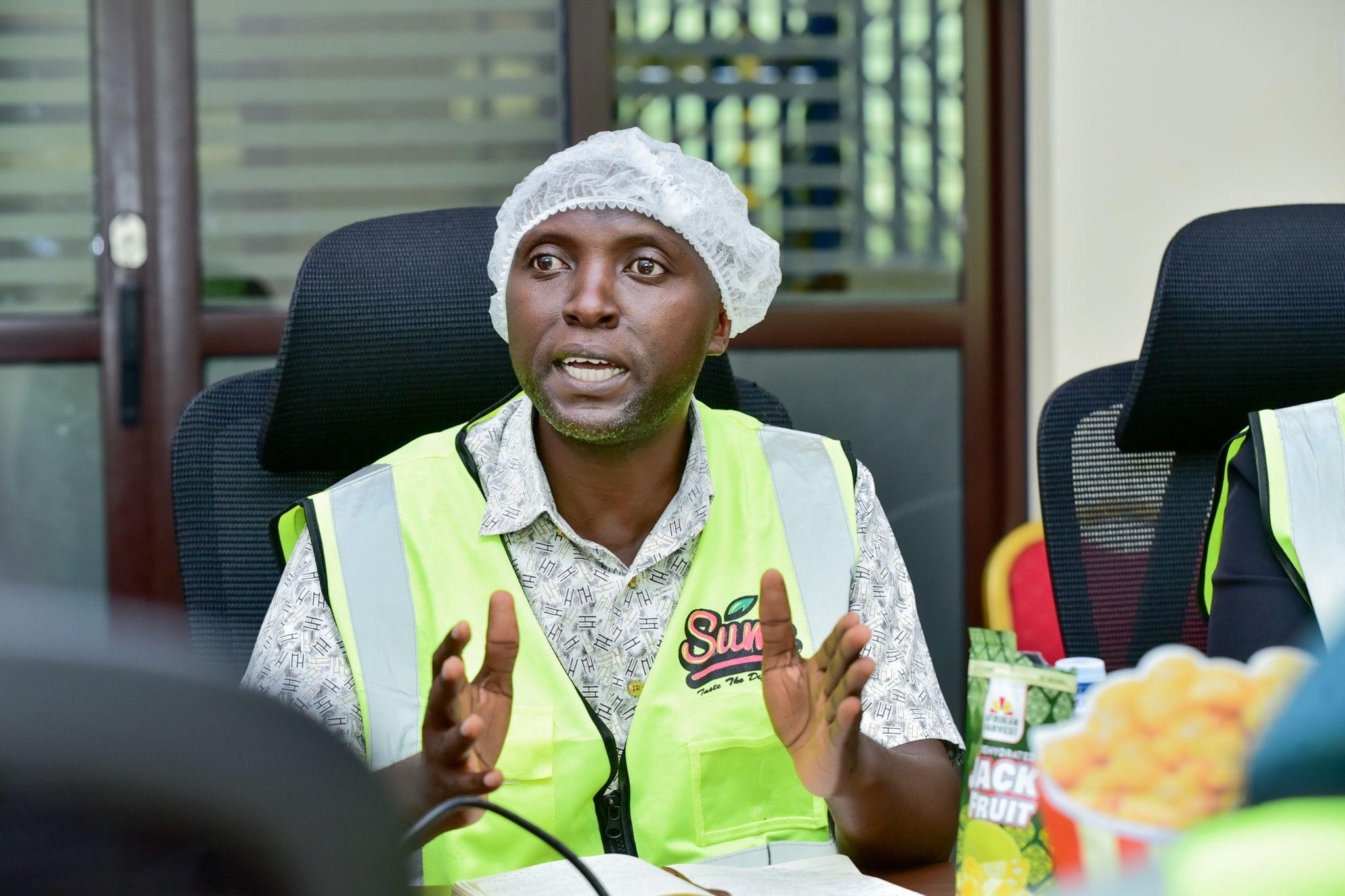
He further suggested specialised courses tailored to the factory’s needs and attachment of research students interested in manufacturing. Such collaboration would contribute to curriculum responsiveness and ensure that graduates are equipped with market-relevant competencies.
Strengthening University–Industry Linkages
The engagement reflects Makerere University’s continued commitment to strengthening partnerships that bridge knowledge generation and real-sector application.
Both institutions expressed a shared vision of building a structured, mutually beneficial collaboration that integrates research, innovation, skills development, and enterprise growth, positioning the University as a key knowledge partner in Uganda’s manufacturing transformation.
Discussions remain ongoing as both parties refine priority areas for formalisation.
Caroline Kainomugisha is the Communications Officer, Advancement Office.
General
Makerere University commemorates 13 transformative years of partnership with Mastercard Foundation
Published
3 days agoon
March 2, 2026
On Friday, 27th February 2026, Makerere University proudly celebrated 13 years of a significant partnership with the Mastercard Foundation, a prestigious independent organisation headquartered in Toronto, Canada. Since its inception in 2013 with the launch of the Scholars Program-currently headed by Prof. Justine Namaalwa, this collaboration has grown significantly, expanding to include two additional initiatives: The E-learning Initiative-headed by Prof. Paul Muyinda Birevu and the Africa Climate Collaborative-headed by Prof. Gorretie Nabanoga. This long-term partnership underscores the shared commitment to fostering education, innovation, and sustainability in Uganda and across Africa.
The colourful event coincided with the 76th Graduation Ceremony, during which Makerere University honoured Ms. Reeta Roy, the Founding President and CEO of the Mastercard Foundation, with an honorary Doctor of Laws.

In her commencement speech, Ms. Roy thanked Makerere University for considering a partnership with the Mastercard Foundation and for conferring upon her a prestigious honorary award.
“Mastercard Foundation is honoured to collaborate with this esteemed university, and I appreciate the recognition through this award. I am excited to be associated with Makerere University and look forward to actively embodying its values. Joining the broader community of alumni from this distinguished institution is a privilege, and I am eager to contribute to its legacy,” stated Ms. Roy.

During the reception in honour of Ms. Roy, the Chairperson of Makerere University Council, Dr. Lorna Magara, acknowledged the invaluable support from the Mastercard Foundation. She emphasised the profound impact of the Foundation’s various initiatives, particularly the scholarships for disadvantaged youth, which enable them to access higher education and opportunities that might have otherwise been beyond their reach.
“On behalf of the Makerere University Council and the broader University community, I extend our sincere gratitude to Mastercard Foundation for its commitment to collaborating with Makerere University in various endeavours, especially for providing scholarships to our underprivileged young people who would never have stepped inside a lecture room at the University.” Dr. Magara stated.

Dr. Magara, in a special way, thanked Ms. Roy for her transformative leadership and unwavering commitment to supporting young people in Africa, citing her efforts to ensure young people get their voices heard.
“As a university, our business is with young people. We are therefore committed to providing the environment and education that deliver meaningful pathways. We will provide an environment that ensures young people have a voice and agency to create meaningful change in society.” Dr. Magara pledged.

Dr. Magara further congratulated Ms. Roy on her honorary Doctor of Laws from Makerere University, noting that it is the university’s highest honour for individuals who have excelled in their careers.
“On behalf of the Makerere University community, I would like to extend my heartfelt congratulations on your honorary Doctor of Laws. This esteemed recognition represents the highest honour our institution can bestow on individuals who have demonstrated exceptional achievement and excellence across various facets of their career.” Dr. Magara remarked.
Prof. Justine Namaalwa, the Program Director of the Mastercard Foundation Scholars Program and the Coordinator for all Mastercard Foundation Initiatives at Makerere University, expressed her appreciation for the thirteen-year collaboration between Makerere University and the Mastercard Foundation. She highlighted that the partnership had yielded significant, impactful results.

“In 2013, Makerere University partnered with the Mastercard Foundation to educate the next generation of transformative African leaders who can positively impact their lives, their communities, and the economies of Africa. The partnership has had a significant impact. I thank the University Management and the Foundation team for this visionary collaboration,” remarked Prof. Namaalwa.
Prof. Namaalwa articulated that the partnership with the Mastercard Foundation is primarily focused on empowering young people as agents of change for transformational leadership in Africa. She presented compelling statistics demonstrating the positive impact of the scholars’ program, highlighting the success of individuals who have completed their education and their subsequent professional experiences after university graduation.

“This partnership focuses on young people, aiming to create positive change in their lives. To date, the Scholars Program has graduated 974 alumni, with 48% securing formal employment, 18% starting their own businesses, 8% participating in internships, and 5% pursuing further education. Overall, 72% of Scholar alumni are actively engaged in employment or entrepreneurship,” Prof. Namaalwa stated.
The colourful event showcased a dynamic array of activities that highlighted the entrepreneurial spirit of Scholars and alumni from the Mastercard Foundation at Makerere University. Attendees enjoyed a mini-exhibition featuring innovative products from these ventures.

A video documentary illustrated the positive impact of the three Mastercard Foundation initiatives. The event also featured inspiring poetry recitations by Scholars and a lively atmosphere of music and dance, creating an engaging and memorable experience for all participants.
The high-level event was attended by senior University officials, led by the Chairperson of Council, Dr. Lorna Magara; the Vice-Chancellor, Prof. Barnabas Nawangwe; the Vice-Chancellor, Academic Affairs, Prof. Sarah Ssali, Deputy, and the Ag. Deputy Vice-Chancellor, Finance and Administration Prof. Winston Tumps Ireeta. Mr Yusuf Kiranda, the University Secretary; and Prof. Buyinza Mukadasi, the Academic Registrar, Chancellor Emeritus-Prof. Ezra Suruma, former Chairperson of the Steering Committee of Mastercard Foundation Scholars Program-Prof. Umar Kakumba, and the Deputy Executive Secretary, RUFORUM, and former Program Coordinator of the Scholars Program at Makerere University-Dr. Florence Nakayiwa, among many other officials graced the function.

The event was also graced by a high-level delegation from the Mastercard Foundation, led by Ms. Reeta Roy, the Founding President of the Foundation, and included the Mastercard Foundation Teams from the Country offices in Kigali, Nairobi, and Kampala; the Program partners; the Mentors, Scholars and alumni; as well as the Program staff of the three Mastercard Foundation Initiatives at Makerere University.
At the end of the event, Makerere University honoured Ms. Reeta Roy with University memorabilia, including a pencil-drawn portrait, a pencil-drawn photo of the Ivory Tower, and other Ugandan crafts. Ms. Roy cut a graduation cake together with the 10 graduates of the 76th graduation ceremony from the Mastercard Foundation Scholars Program.
Bernard Buteera is the Principal Public Relations Officer for the Mastercard Foundation Scholars Program at Makerere University.

It is with great pleasure that I welcome you to this edition of Mak News Magazine, a publication that continues to chronicle Makerere University’s journey as a centre of academic excellence, innovation, and societal transformation.
The stories featured in this issue vividly demonstrate Makerere’s unwavering commitment to addressing national, regional, and global challenges through research, partnerships, and people-centred solutions. They reflect a university that is deeply engaged with society, one that applies knowledge not only to advance scholarship, but also to improve lives.
A recurring theme in this edition is innovation for resilience and inclusion. From the College of Agricultural and Environmental Sciences’ Healthy Soy Initiative combating child malnutrition amid climate change, to the cutting-edge work of CEDAT’s Team Green Minds integrating IoT into agriculture, Makerere continues to harness science and technology to respond to pressing development needs. Equally inspiring is the College of Natural Sciences’ success in securing international funding to scale up fish processing technologies, with a deliberate focus on empowering women and strengthening livelihoods.
This issue also highlights Makerere’s growing role in advancing health and wellbeing. The launch of the Early Intervention Psychiatry Services Clinic at Makerere University Hospital marks an important step in strengthening mental health services, while the Hospital’s transformation from a modest sickbay into a centre of excellence stands as a testament to decades of strategic investment, dedication, and service to the nation.
Our commitment to education access and global engagement is equally evident. Strategic partnerships, such as that between the College of Education and External Studies and the Uganda Vocational and Technical Assessment Board, are expanding pathways to quality education. The establishment of the first-ever United States Studies Centre in the Great Lakes Region positions Makerere as a hub for dialogue, research, and policy engagement on global affairs. We also celebrate our vibrant international community, with graduates drawn from 67 nationalities—affirming Makerere’s status as a truly global university.
This edition further showcases initiatives that ensure long-term institutional sustainability, including the launch of the CoCIS Endowment Fund, infrastructure developments such as the modern hostel at Buyana Farm, and transformative programmes supported by the Mastercard Foundation that continue to empower young people across the continent.
As you read through these pages, I invite you to reflect on the collective effort of our students, staff, alumni, partners, and supporters whose contributions make these achievements possible. Together, we continue to shape Makerere University as a place where knowledge serves humanity.
I wish you an engaging and inspiring read.
Prof. Barnabas Nawangwe
VICE CHANCELLOR
Trending
-

 Humanities & Social Sciences1 week ago
Humanities & Social Sciences1 week agoMeet Najjuka Whitney, The Girl Who Missed Law and Found Her Voice
-

 General1 week ago
General1 week ago76th Graduation Highlights
-

 Agriculture & Environment2 weeks ago
Agriculture & Environment2 weeks agoUganda Martyrs Namugongo Students Turn Organic Waste into Soap in an Innovative School Project on Sustainable Waste Management
-

 Health2 weeks ago
Health2 weeks agoMakerere University School of Public Health Graduates First Cohort of Cost-Effectiveness Analysis Short Course
-

 Agriculture & Environment1 week ago
Agriculture & Environment1 week agoCAES Presents Overall Best Performing Student in the Sciences & a Record 28 PhDs at the 76th Graduation Ceremony
